- Home
- Helen Forrester
Liverpool Daisy Page 8
Liverpool Daisy Read online
Page 8
Daisy had put her teeth in immediately after having her breakfast, and now she favoured Bill with a watery smile which set his heart aflutter within his withered frame.
“That’s proper kind of you, Mr. Donohue,” she said warmly.
Bill bridled. “You’re welcome, I’m sure,” he said and went shyly back up the stairs.
TEN
While Bill toiled amid the rosy wallpaper. Daisy took her mother’s shawl and a few slivers of soap wrapped in a piece of newspaper to the public wash house. Even the brick copper built into the corner of her kitchen was not large enough to hold such a heavy garment, and Daisy’s skin rose in goose pimples at the idea of wearing a dead person’s shawl without first washing it.
The tide was low and the weak October sun glanced and danced on the tiny waves whipped up by the boisterous wind. Far away, towards the coast of Wallasey, a solitary yacht ran fast before the wind. Daisy watched for a minute as its mast seemed to dip towards the water. She sighed. Michael knew how to sail a boat. As a young boy he had sailed on a clipper all the way to China to fetch tea, and he had always wanted to be rich enough to buy a bit of timber to build himself a rowing boat to take out on the river. Poor Mike. He was a bit feckless and hot-tempered, and once or twice he had given her a good hiding. They had always made up their quarrels, however, and she had usually been pregnant before his next voyage. And he left her an allotment. She told herself she couldn’t really complain.
As she passed the Foley home, she said good morning to Mrs. Foley, who was seated on a chair outside her front door peeling potatoes into a piece of newspaper.
Lucky her, Daisy envied. Two married daughters and their husbands and kids to keep her company.
Daisy had for years been so busy trying to keep her children alive and then nursing her mother that she had, like Mrs. Foley, not had much time to miss her sea-going husband. But now as the wind blustered round her wide black skirt, she felt that being the wife of a ship’s stoker was no life at all.
Now her mother was dead her loneliness appalled her. Relations she had in plenty, and Nellie was the dearest of friends. But the house was empty and so was her rough and noisome bed.
The wash house loomed before her, a dark and steamy cavern, a cavern equipped, however, with gas-heated boilers, lots of hot water and big sinks. Several women with sleeves rolled back from skinny arms were hard at work with scrubbing boards or were wringing out clothes through huge wooden wringers.
None of Daisy’s friends or relations were there because few of them had anything to wash. The children were all stitched into their clothes for the winter, with warm pads of newspaper set between their vests and jerseys.
Daisy whipped up a good lather with her flakes of soap and a little hot water, then ran the thundering cold tap until she had a lukewarm mixture. She carefully lowered the shawl into the water and worked the soapsuds gently through it.
As she dabbled the heavy wool in the water, she felt as if she was slowly pushing her mother down into a watery grave, and she cried silently to herself.
Mrs. Thomas of Temperance fame was using the next sink. She would not normally have acknowledged the existence of the dirty Irish woman next to her. She noticed, however, her neighbour’s tightly closed eyes and muffled snivels, and being by nature a kindly woman she touched Daisy’s arm with a soapfrothed hand.
“Are you well, Mrs. Gallagher?”
Daisy swallowed a sob, and her eyes shot open at the sound of the inquiry delivered in a high-pitched Welsh sing-song. She hastily pushed her teeth into order with an impatient tongue. God, how sore her gums felt!
“Why, yes, Mrs. Thomas, thanks be. It’s me Mam — I was washing her shawl — she passed on last Saturday — and, well ….”
“Yes, indeed, I saw the funeral pass by. You must be feeling very bad.” Mrs. Thomas seized hold of the hot tap over her sink and set it roaring like a waterfall. Over the frenzied splashing, her voice rose, “I’m very sorry.” She leaned over towards Daisy, her face earnest beneath her straight fringe of hair, and patted her wet arm. “Try not to grieve — the Lord giveth and the Lord taketh away,” she added piously.
Daisy had often raised a laugh in the Ragged Bear by imitating Mrs. Thomas using her favourite quotation, and now she smiled bleakly.
The Lord could take away a hell of a lot, when he felt like it. He had in the shape of Mrs. Donnelly taken away four shillings and tenpence that morning — and, she admitted honestly, given her back sixpence via the kindly Bill Donohue.
She nodded acceptance of the well-meant consolation offered by Mrs. Thomas, rubbed the drip off the end of her nose with wet fingers, and continued to wash.
During the early afternoon, the lady from the Welfare called on Mrs. Thomas with regard to the provision of a wheelchair for her invalid daughter. Mrs. Thomas, feeling that Mrs. Gallagher must be very lonely and in need of consolation, kindly mentioned that old Mrs. O’Brien had died the previous Saturday and no doubt Mrs. Gallagher would be glad of a friendly call.
The Welfare lady understood perfectly the enormous gulf that lay between Welsh Mrs. Thomas, devout Presbyterian and Temperance worker, and Mrs. Gallagher, Irish Roman Catholic, which made it difficult for Mrs. Thomas herself to communicate with the bereaved woman, and she promised to call.
After finishing her business with the Welsh woman, she stood on the well-scrubbed pavement outside Mrs. Thomas’s front door, and considered what she could say that would be helpful to Mrs. Gallagher.
She remembered suddenly that only the day before she had called at the Gallagher house to deliver a blanket for Mrs. O’Brien. Daisy had said that her mother was sleeping and had accepted a beautiful blanket squeezed out of precious funds specially for Mrs. O’Brien. She had not said that her mother was already dead.
Really the woman was intolerable. The Welfare lady climbed into her Austin Seven and slammed the door after her. She made a note in her notebook that Mrs. Daisy Gallagher was not to be helped again, except in the most pressing circumstances.
ELEVEN
Because she was feeling so depressed, Daisy did not go directly home from the wash house. She went to call on her younger sister, Agnes.
Agnes was not much help. She burst into a passion of tears within minutes of Daisy’s arrival.
“Poor Mam,” she whispered, as she took the teapot from in front of the fire and poured a boiling hot, black cup of tea for her sister. After setting the cup conveniently beside Daisy, she sat down herself, threw her apron over her head and wailed miserably into it.
Daisy had once remarked that there was more water in Aggie than in a whole wet week. She could turn on the tears like a tap.
Now Daisy did her best to turn off the tap. Instead of being comforted, she found herself doing the comforting, and this took some time. She spread her mother’s shawl over the fireguard and let it steam while she held Agnes’s shrouded head to her bosom. She felt like weeping herself, but now that she had taken her mother’s place in the family hierarchy she felt she must do as her mother would have done, and lift Aggie’s spirits somehow.
She patted Agnes’s apron-covered head and held her close until the damp began to penetrate her blouse; then she began to divert her attention by mentioning that her son, Marty, aged five, would be home soon for his dinner and so would Winnie, her daughter. And would Joe, her husband, be home for dinner?
This reminder of her duties made Agnes emerge from her apron and start fluttering about the room like Moggie playing with a screw of paper.
Despite her earlier cry of poverty to Bill, Daisy still had enough money left to buy a pair of bloomers and she was determined to make this purchase. She did not dare buy them at any local store — somebody would be sure to see her and make an awkward comment, so after a friendly cup of tea with Bill Donohue, she took the tram again to the city. She would buy the bloomers in one of the stores in London Road, where she had been the previous day. She felt very brave making this second expedition alone, and she comforted
herself about the extravagance with the thought that the next day she would draw her allotment from the shipping office; and this would cover the rent and the cost of some coal and lamp oil. She could at worst pawn the fender again and the new blanket, if she could not manage until the following allotment day.
She spent a couple of happy hours roaming through the big stores and finally found what she wanted. She felt like a princess as she tucked the small parcel under her shawl, and she wondered how she could ever have been afraid of going to town by herself; around London Road there were plenty of Irish women like herself, long hair screwed up in a variety of Victorian styles, black shawls, black skirts, sometimes with aprons, sometimes without. It seemed quite homely.
As she strolled down the crowded pavement, she remembered her glorious repast of the previous day. Her mouth watered uncontrollably, and soon she was digging into a large plate of fish cakes, chips and peas. In the interests of economy, she ordered a cup of tea instead of a pot.
She again sat modestly with her back to the counter, so that she should not be seen eating, and this time she kept her teeth in. She ate slowly and with difficulty, and at times was sorely tempted to take the teeth out and set them by her plate. She was vain enough, however, to wish to keep her lovely new smile, and she finally shovelled in the last pea on the end of her knife with a great sense of achievement. Afterwards, she sat for some time watching the shadowy passers-by through the steamy window.
She was reluctant to go home. Bill Donohue would have finished his work and left, and there would be only Moggie to greet her. It was rather late to call on anybody, except her sisters. She had already seen Agnes and she doubted if Meg would have yet simmered down sufficiently to bury the hatchet. As she had once explained to a neighbour, “Our Meg is proper tempreementil. What you do you wait — maybe a week or two. Then you start up again as if nothing had happened.”
It was after eight o’clock when she finally left the little fish and chip shop with a friendly “ta-ra” from the proprietress. Outside she paused, rubbing her arms under her shawl, as she gazed absently across the street.
The side road was quiet. A man in greasy mechanic’s overalls whistled as he entered the pub at the corner, two shop girls, chattering in high-pitched voices, tottered by in high-heeled patent leather court shoes.
Daisy grinned to herself as she looked at the bright pub sign; and she hummed almost gleefully the tune the sailors had been singing the previous night. But enough was enough. She must behave herself. She folded her hands primly across her stomach; but still she did not move.
A constable on his beat passed her with only a casual glance. Her shawl and black skirt, her white apron and frowsy hair style were as common and respectable as his own uniform; prostitution was a rare phenomena amongst the Liverpool Irish. His indifference riled her.
“If I’d been decked out like a bloody pro,” she fumed, “with furs and feathers and ear-rings an’ all, he’d have noticed all right. He’d have stopped and told me to move on.” She scowled at the constable’s broad back as he turned the corner.
Perversely she began to sway her hips. With an irritable flip, she set her shawl further back on her shoulders in spite of the cool weather, so that the curve of her breasts was better outlined. Slowly, humming the sailor’s tune, she swung down the street past the pub and turned round its garish opulence towards the familiar alley. She walked well, and in better circumstances would have been regarded as a fine-looking woman.
Still simmering at the pure indifference of the constable who had passed her, she went down the street without incident. At the end, where it ran into a cross street, she hesitated. The cross street was very dark. She spun round fretfully so that her skirt spread round her and drifted back up the slight rise again towards the pub. When a middle-aged workman approached her, she simpered at him, but he hardly noticed her and continued on his way. This provoked her even more and, as she again approached the pub, she opened the two top buttons of her blouse and tucked the ends in, something no respectable woman would do. She gritted her teeth. She would show them.
She would not have been able to explain who “they” were, except that they were a vague, amorphous cloud of people to whom the name Daisy Margaret Gallagher meant nothing. They employed the police, they were relieving officers, they owned boats that failed to dock in Liverpool, they paid out allotments across shiny mahogany counters, they ignored her when she was sick and found her a nuisance when she was well and wanted something. They surrounded her in ever-widening ripples; there were a lot of theys and thems in courts who put one’s sons and daughters in prison. There were even more of them, as Michael had often remarked, in places like London who cared nothing about people who lived north of the River Trent, and yet reckoned they owned the very land you stood on. In short, they were ghostly menaces who threatened the existence of Daisy Margaret Gallagher, who lived down on the waterfront in a cold house where she had been often hungry.
Of course, if your son killed a man, reflected Daisy, as she swaggered slowly up and down, they noticed quick enough. Then you became a screaming biddie to be ejected from the court room while they took your boy away from you. If you dressed in flowers and glittering earrings and walked up and down as she was doing, smiling at every man who passed, then you became a person important enough to be arrested. You might become important enough to have regular clients who knew you, men from outside the tight family world which was normally one’s only hope in a wicked universe. You might even find yourself in bed with the beak instead of in the dock in front of him. At this last idea Daisy laughed out loud and forgot for a moment what she was doing.
“Hey, Judy,” whispered a voice from the entrance of the alleyway.
She jumped with fright and flung one arm dramatically across her breast. “Holy Mother!” Then as she observed the shadowy figure of a man, her expression changed and she smiled cunningly. “’Ello, la,” she greeted him.
The shadow materialized into a squat, heavily built man in a blue serge suit that was so crumpled it must have been rolled up in a kit bag for months. He grinned knowingly at her.
“What about it, Ma?” He nodded towards the comfortable darkness of the alley.
She looked him up and down, held back by a pang of fear.
“Give you three bob,” he promised hopefully. He put out his hand and caressed her bare throat.
She smiled suddenly at him with her flashing white teeth and he almost dragged her into the black lair from which he had emerged, at the same time fumbling in his trouser pocket for the money. She held out her hand and he put three silver shillings into it.
He pressed her hard against the rough stone wall, prepared for only a moment or two’s dalliance. Daisy, however, was not sure how much was expected of her. Now she was literally face to face with a client whom she had herself beguiled by flaunting herself in the street, she was nervous about her ability to please. She also feared that he might strike her if she tried to run away. He was solidly built and stronger than she was.
As his hands ran down her back, however, her natural instinct to tease, to caress, took over; and she found herself acting in exactly the same way as she would have done if Michael had caught her in a dark corner. It did not take her long to have him gasping with desire. Afterwards, he did not hurry away, as she had expected, but leaned against the wall by her in a friendly fashion till his breathing returned to normal.
He took out a packet of Woodbines and offered her one. With eyes cast down she shyly refused the cigarette. She was trembling under her shawl and wondering what kind of devil lay within her that she could enjoy a strange man so much.
“What’s your name?” he asked her, as he took a closer look at her through a cloud of cigarette smoke.
“Daisy.”
“Been in this game long?”
“Well.…” She did not know how to reply. She had not considered that a man she picked up might carry on a conversation with her, and she turned her face uneas
ily away from him.
He saw her shyness, and he laughed softly. The laughter made a plain, hard face suddenly friendly. He flicked the ash off his cigarette. There was many a good woman nowadays who took a man occasionally to help out with the housekeeping, he thought shrewdly.
“Well, Daisy,” he said. “See you again.” He hitched his belt a notch tighter and rolled with typical seaman’s gait back down the alley to the street.
She stood leaning against the wall for a while until she heard voices in a back yard further up the alley. It reminded her that people were closer to her than the deserted entry suggested. She moved slowly along to the street, where she paused uncertainly. Then an impish grin spread over her face and she resumed her promenade up and down the road. She felt young and excited and far from tired.
A black man in a blue suit and trilby hat approached her very diffidently, not certain whether she was a prostitute or just a woman waiting to catch a drunken husband coming out of the Ball and Chain. She stuck her nose in the air and snubbed him soundly. He slunk away.
“Can’t stomach them black people,” she muttered. “Don’t know how Mike can work with them. Proper scary — black like Old Nick himself.”
A chill wind sprang up and she began to feel cold. She bit her lower lip and then tittered to herself as the three shillings in her apron pocket clinked against her. It was as easy as falling off a dock. These men’s needs were no different from Michael’s and, judging by his friendliness, she had really pleased the man in the rumpled suit.
The street seemed deserted, so she retrieved the parcel of bloomers from the top of the wall on one side of the alley and walked down to Lime Street, where she caught a tram home.
For the first time for years she felt bright and venturesome, as if she had discovered again something of the gaiety of her youth. There was also a feeling of wonderment that something she had done had been appreciated.

 The Lemon Tree
The Lemon Tree Thursday's Child
Thursday's Child Yes, Mama
Yes, Mama Madame Barbara
Madame Barbara Twopence to Cross the Mersey
Twopence to Cross the Mersey A Cuppa Tea and an Aspirin
A Cuppa Tea and an Aspirin The Moneylenders of Shahpur
The Moneylenders of Shahpur Lime Street at Two
Lime Street at Two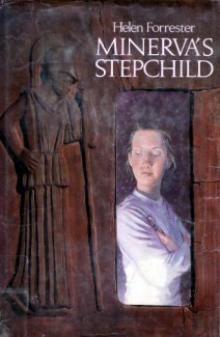 Minerva's Stepchild
Minerva's Stepchild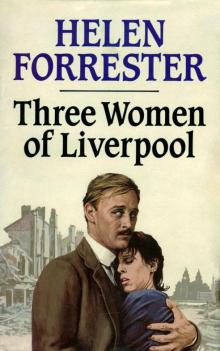 Three Women of Liverpool
Three Women of Liverpool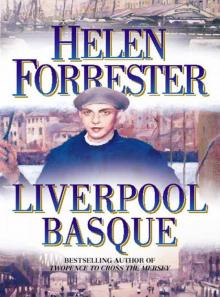 The Liverpool Basque
The Liverpool Basque Liverpool Miss
Liverpool Miss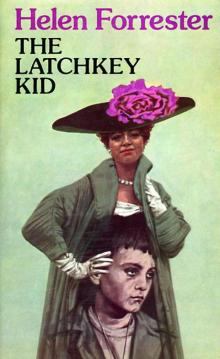 The Latchkey Kid
The Latchkey Kid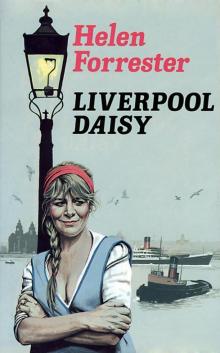 Liverpool Daisy
Liverpool Daisy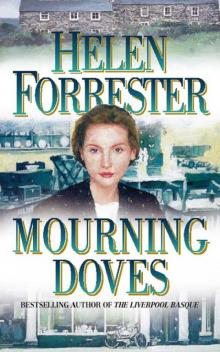 Mourning Doves
Mourning Doves